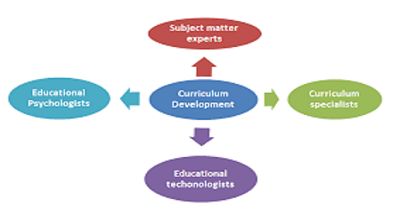Curriculum Construction
Curriculum construction is a complex and multifaceted process that involves the planning, development, implementation, and evaluation of educational programs. Whether designing a curriculum for a school, college, or training program, certain basic guidelines can help ensure its effectiveness. Here are some fundamental principles for curriculum construction:
Define Clear Goals and Objectives:
Clearly articulate the educational goals and objectives you want to achieve. These should align with the overall mission and vision of the institution or program.
Understand the Learners:
Consider the characteristics, needs, and abilities of the learners who will be engaging with the curriculum. Tailor the content and instructional strategies to meet their diverse learning styles and backgrounds.
Sequential Organization:
Structure the curriculum logically and sequentially. Content should be organized in a way that builds upon prior knowledge and skills, facilitating a smooth progression of learning.
Relevance to Real-World Application:
Ensure that the curriculum is relevant to real-world contexts. Students should be able to apply what they learn to practical situations, promoting the development of critical thinking and problem-solving skills.
Incorporate Varied Teaching Methods:
Use a variety of teaching methods to accommodate different learning styles. Include a mix of lectures, discussions, hands-on activities, group work, and technology-enhanced learning experiences.
Assessment and Evaluation:
Develop a robust assessment system that aligns with the stated objectives. Include formative assessments for ongoing feedback and summative assessments for evaluating overall achievement. Use a mix of assessment methods, such as tests, projects, and presentations.
Flexibility and Adaptability:
Design the curriculum to be flexible and adaptable. Educational needs and contexts may change over time, so the curriculum should be able to accommodate new developments and emerging trends.
Inclusion of Core Concepts and Skills:
Identify and emphasize core concepts and skills that are essential for a well-rounded education. Ensure that the curriculum covers foundational knowledge while allowing for exploration and specialization in specific areas.
Continuous Improvement:
Implement a system for continuous evaluation and improvement of the curriculum. Gather feedback from instructors, students, and other stakeholders to identify areas for enhancement and make necessary adjustments.
Alignment with Standards:
Ensure that the curriculum aligns with relevant educational standards, guidelines, and regulations. This helps maintain consistency and quality in educational programs.
Resource Considerations:
Take into account the availability of resources, including instructional materials, technology, and personnel. Ensure that the curriculum can be effectively delivered with the available resources.
Professional Development for Instructors:
Provide opportunities for professional development for instructors to stay current with educational trends, methodologies, and content knowledge related to the curriculum.
Note
Remember that these guidelines are general principles, and the specifics may vary based on the educational level, subject matter, and institutional context. Regular reviews and updates are crucial to keeping the curriculum relevant and effective.
